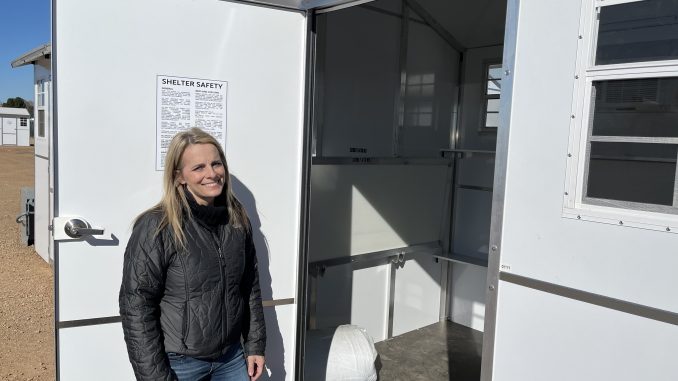
Still empty, the 177 Pallet shelter units at the Chico Emergency Non-Congregate Housing Site are perfectly square and stark white, collectively serving as a blank canvas waiting to be colored by those who will occupy and run the site. Only small touches remain to complete the infrastructure.
Though the project has been widely lauded as the most ambitious effort ever to address local homelessness, questions about the site’s operation have many people wondering if the final picture will be a masterpiece, a mess or something in between.
Some homeless advocates and service providers have questioned the ability of the Jesus Center—named as the facility’s managing agency on Feb. 9—to operate the site. Also of concern are staffing, rules and whether a site that could potentially house 354 individuals will prove too large to be manageable (guests do not have to double up on occupancy but can share a shelter with another person if they choose).
As of press time, those fine details remain largely unknown to the public. According to Jesus Center Executive Director Amber Abney-Bass, the site’s opening is contingent on approval of her organization’s proposed plans and another component the city needs to complete in keeping with the Warren v. Chico lawsuit settlement that led to the site’s construction—establishing the Outreach and Engagement (O&E) team.
“We’ve put together the rules, procedures and code of conduct and it’s all going through the process with the judge and all the people that need to review those and confirm their compliance with the settlement terms,” she said at the site Feb. 23. “We actually submitted them fairly quickly after we were named the site operator.”
Chico City Manager Mark Orme confirmed this on Feb. 24, saying it should be a matter of days until the Jesus Center’s guidelines are approved.
He explained the O&E requirement has proven a little more difficult. Unable to secure a contract with a local agency for those services, the city will be hiring hourly employees to do the job. This marks the first personnel to be added to the city’s payroll related to the Pallet site.
O&E personnel will engage with and evaluate unhoused individuals who are targeted for enforcement at non-sanctioned camping areas in the city to determine if they are a good fit for the Pallet site, or the Torres Community Shelter or other available shelter options, during a seven-day period before police will be allowed to issue 72-hour eviction notices.
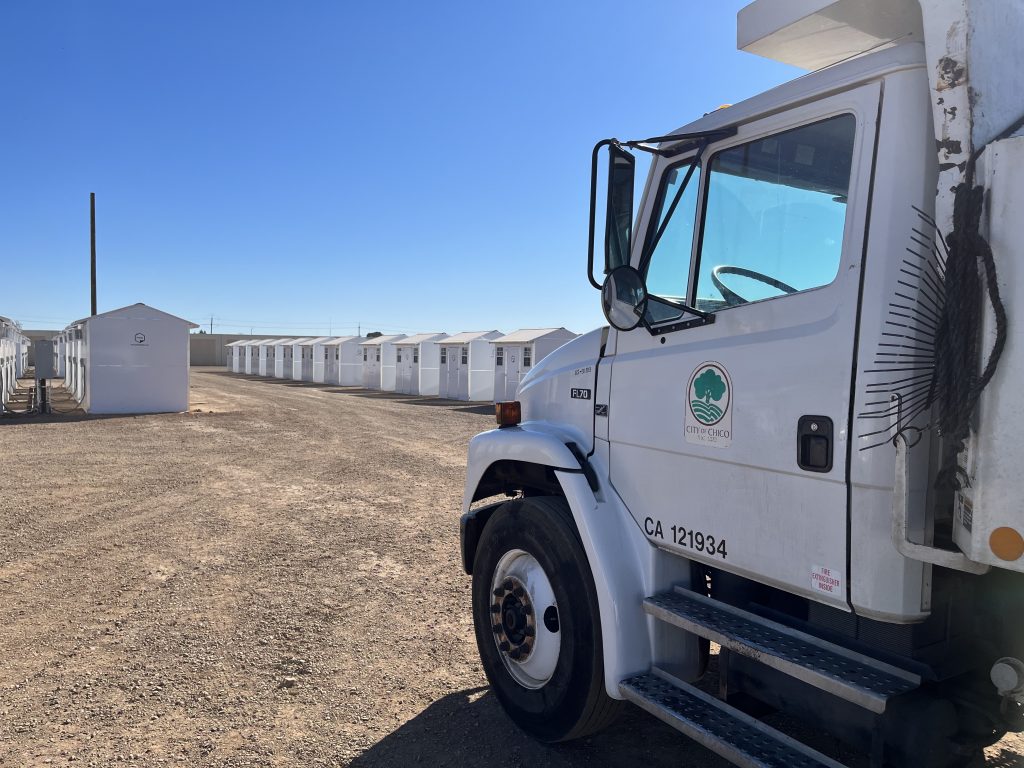
Orme said he was interviewing candidates to fill two positions—a social service worker and an aide. The recruitment will remain open and the city may hire more O&E personnel if necessary.
“It wasn’t our first choice,” Orme said of the city directly hiring new staff, “but we had to do something to get this thing moving.”
Orme said that Armed Guard Private Security will provide security at the site. Security is not a component of the lawsuit settlement, and Orme said that the service didn’t require a new service agreement, as the city already contracts with the business for security services at other locations.
“Security will be 24/7 and contingent on what is needed according to the number of people that use the site,” he said. “It’s not required, but the city believes it’s an essential component at the site to ensure it’s a safe place for people to be.”
A good fit?
Some homeless advocates have criticized the city for awarding the Jesus Center the Pallet site management contract. In its Feb. 18 weekly update, community group Stand Up for Chico posted several concerns about the Pallet shelter site, including comments on the Jesus Center’s oversight.
“They have not previously provided low-barrier shelter, and we hope they will leverage the knowledge and resources of others who have, like Safe Space Winter Shelter, as they develop policies and procedures,” the newsletter reads.
Criticism of the Jesus Center’s lack of low-barrier services stem from the organization’s self-proclaimed “Christ-centered” mission and sobriety requirements to participate in programs.
Rick Narad, shelter operations manager at Safe Space Winter Shelter, shared some of his concerns by phone Feb. 24.
“I wish them luck,” he said. “I want it to succeed because the more people that are housed, the better we all are, as a community. I don’t think there’s anyone who doesn’t hope it will work, but there’s people that are saying, ‘OK, were seeing problems,’ and we’re hoping there’s a way for them to work around problems.”
Chief among Narad’s worries is how tolerant the management will be before evicting guests.
“Excluding people is the last resort,” he said. “You have to have the attitude that throwing someone out is an extreme thing. [At Safe Space] the line is violence. People can yell and scream all they want, but if they hit someone, they can’t stay.
“[The managers] have to accept the fact that they’re dealing with a lot of people with severe mental health issues. There will be people yelling and screaming, and if you’re punishing people just for that, you’re not helping the population.”
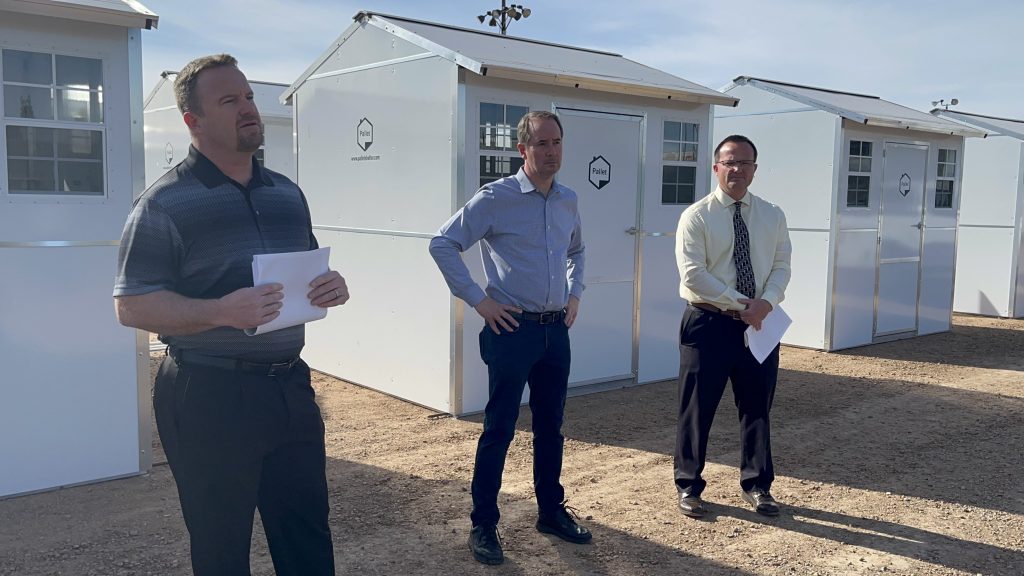
Abney-Bass said her organization has a proven track record of providing the management necessary for a low-barrier shelter and has sharpened these skills in recent years.
“One of the things we’ve heard from the community is that the Jesus Center lacks experience in a low-barrier service model,” she said. “I’d just say prior to COVID, when we left Park Avenue [for our new location], we had 1,383 people in our service card program that specifically accessed low-barrier services there. I think that speaks to the number of folks in our community who are seeking services and their awareness and comfort with a program offered and [run] by the Jesus Center.”
Regarding rules, she continued: “Park Avenue was always a behavior-based model. A code of conduct we imagine out here is really just a revised version of that to incorporate shelter-related things. Some of the things we talked about was respect for others, respect for our neighbors, respect for the community that was providing some of these services, and respect for staff and volunteers. I don’t imagine where we’ll land out here will be wildly different from that.
“That might make some of our community comfortable and some uncomfortable, but I think we’ve done a good job of looking at our programs and improving what needed to be improved.”
Abney-Bass said that since the arrival of COVID, staff training at the Jesus Center has focused on trauma-informed care, crisis intervention, deescalation and strength-based programming. She also said the organization has embraced recovery-based care rather than the idea that everything begins and ends with sobriety. Furthermore, many concerns about barriers will likely be moot since the settlement requires that the Pallet site accept guests regardless of sobriety or mental illness, and participation in any programs or services is not mandatory.
Orme stands by the city’s choice: “I’ve heard criticism of everybody that was potentially going to run the site. When we do anything anything regarding homelessness, there’s going to be criticism. What we’ve seen over the years is the Jesus Center has been very adept and very professional at working with this clientele. They understand our community and have been here. They were very comprehensive in their response and stepped forward when few others did.”
Orme did not give the exact dollar amount of the contract with the Jesus Center, saying there are some one-time costs involved and that it is contingent on how many people use the site. He estimated it will be roughly $1 million annually.
More people, more problems
During a series of ad-hoc committee meetings with community shareholders on homeless solutions overseen by Mayor Andrew Coolidge last spring, sanctioned campgrounds and non-congregate sites emerged as favored shelter options among those involved. One point voiced by many is that such facilities must be small (numbers of 25-50 were bandied around) to remain effective and manageable.
Jennielynn Holmes, the chief program officer for Santa Rosa’s Catholic Charities, oversaw operations at a successful sanctioned camping site in that city during the early days of the pandemic. She said one of the biggest lessons learned from that experience is that it worked best with around 50 guests or less; it became far more difficult to manage when it peaked with a population of 65. She also advocates for several sites spread apart geographically.
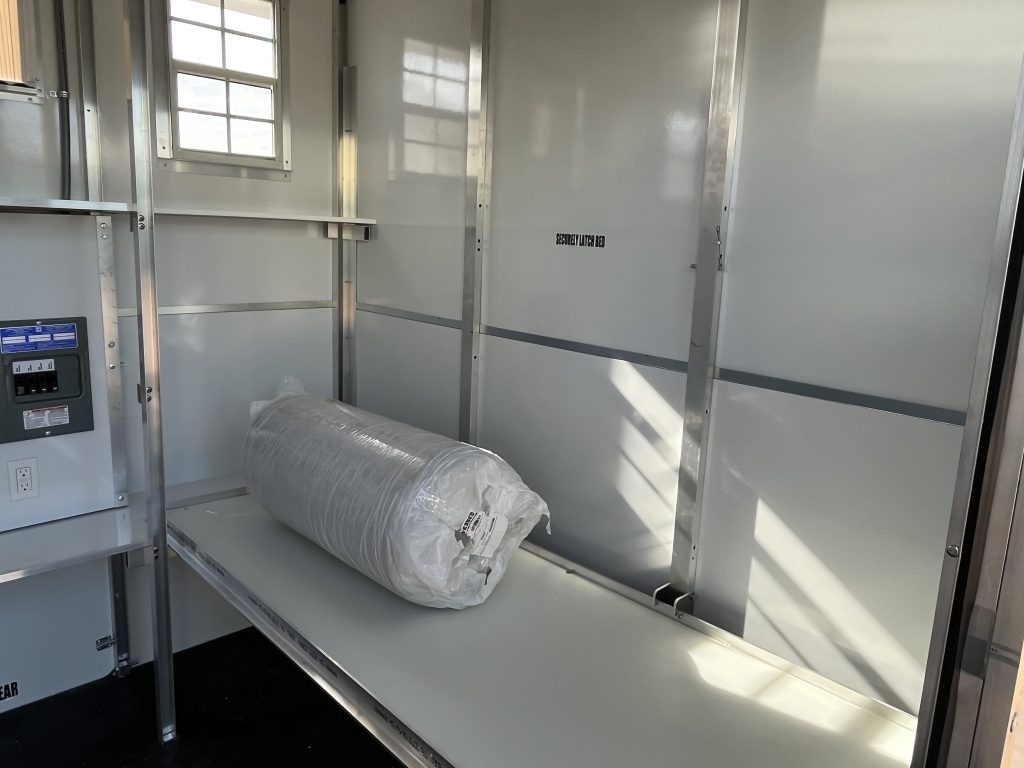
“Being spread out is a matter of equity and access,” she said by phone Feb. 22. “If you have guests with jobs who need to get to work, they can stay closer to work and other needs.”
Moreover, Holmes said smaller, spread-out sites lessen the impacts of such facilities on the surrounding area. This could become an issue in Chico, where the Pallet site shares a fence with the Torres Community Shelter and the Jesus Center is located on the opposite side of the Silver Dollar Fairgrounds property from both facilities.
Narad and another local service provider, Charles Withuhn of North State Shelter Team (NSST), both expressed concern at the sheer size of the Pallet site. Orme and Abney-Bass both noted the number of structures is dictated by the lawsuit settlement, which requires at least 50 units but allows for up to 177 shelters.
The settlement also says that if adequate shelter is not provided under the city’s plan, the city must identify three alternative camping sites.
“At this time, that’s not warranted,” Orme said. “There are a tremendous amount of beds out there, we’ll be working with all non-profits to know about every available bed, and we’re confident we won’t need more sites.”
Withuhn disagrees. He said that in recent weeks the NSST has counted 450 people staying in 38 separate multi-person campsites all over Chico. He believes more sites, and particularly sanctioned camping sites that allow people a different option, are necessary.
Just how many people will utilize the new site is also a subject of much conjecture and conversation. Abney-Bass said she expects roughly 150 guests when the site opens. Based on that, she plans to have roughly 17 staff on site, including case managers who will focus on guests’ individual needs; more will be hired if necessary. She said a large focus will be moving people into the next level of housing (transitional, independent, etc.) as they are ready, and she said the Jesus Center plans to partner with Chico Housing Action Team and others to make that happen.
“We want to be abundantly staffed to accomplish our goals and so that no one is waiting on us, but also want to be efficient and respectful of public funds,” she said.
Overall, Abney-Bass is hoping for the best but knows it will be a difficult road with unexpected twists.
“I’m not a Pollyanna about it, and know that it will come with some growing pains,” she said. “When you do projects like this, unintended things always creep up, no matter all the planning we do, and there will still be places we have to make adjustments. It would not be wise to imagine how we open on day one will be the way were operating on day 30, or day 90, or day 120.”



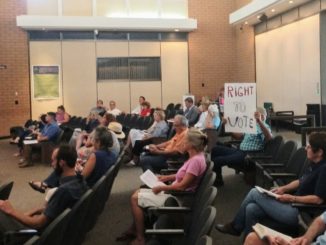
No shelter will work without rules and many people who are on the street are there because they do not want to accept any restrictions on their behavior, even if it violates the right of others.
The facility needs the following rules:
1. No alcohol or illegal drugs permitted on site;
2. No violent, threatening or disruptive behavior. Stay out of other residents’ “space.”
3. Each resident will perform some kind of useful work every day.
Residents violating these rules will be evicted and arrested if they attempt to live in public spaces thereafter.
Some residents will be unable to follow the rules, but those who do deserve protection.
I wish the best for the residents and those who have taken on this difficult task.
It is hard to see how any project like this can work without addressing alcoholism, addiction and mental illness. I wish them well, but no program for the homeless can succeed without a long-term plan to get people off the street permanently. Providing a living cubicle is only the beginning of what is needed.
I am not sure how others choose to live their lives should be a criterion if residents follow the rules. I base this on spending many years living in a tiny studio apartment, both as a Chico State student and a broken man. All kinds of people lived there, and we got along just fine. Twenty of us lived packed together, separated by tissue-thin walls in two parallel apartment buildings. It wasn’t easy (and I know this because I could be a pain, as could others), but we all accepted and respected each others’ differences.
A mutual understanding of living life in poverty works wonders. A roof over one’s head and knowing others are safe and secure creates a bond. Everyone deals with life in their own way, especially those who’ve suffered pain and loss. It’s a simple equation: Find someone who has lived this life, or knows of it, is judgment-free and fair in their dealings with people, and the 64-square foot Pallet shelters will become a community like no other, a place people will remember and value for the rest of their lives.
Both of these commutators make very valid points and I greatly appreciated their insights. The very real problem has always been …what do you do with those who reject the laws or rules and refuse to fit in when given the opportunity? I doubt there is a 100% solution.
Deeply concerned we are now creating a Ghetto that assumes a melting pot of problems instead of a salad bowl. Mixing victims with victimizers is dangerous. It’s like saying everyone who has a cough has a cold. People without shelter are not all alike and fit in under the same roof. Rapist and rape victims for instance. Abused people and abusers forced together? Stop and think. We need to break this up into common needs shelters with diverse locations..
I agree, people are different. We will need many different managed programs to really make noticeable progress on this issue.